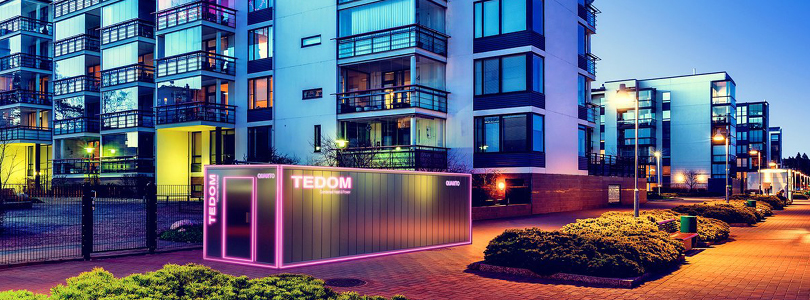Across the UK many establishments have turned to Combined Heat and Power (CHP) to reduce the amount they pay out on heating and electricity, including Imperial College London, who have two combined heat and power systems. These Micro-CHPs have delivered the College significant cost reductions and decarbonisation benefits over the years.
Imperial College produced a report back in 2017 that identified the key benefits of its future energy system.
‘When compared with an energy system with no micro-CHP, adding micro-CHP to the energy mix generates a gross reduction in infrastructure and operating costs of more than €6,000 for every kilowatt of installed capacity up to 2050.’ – Imperial College London

How Does Micro CHP Technology Work?
When a CHP generates electricity, heat is created in the process. CHP technology allows this byproduct to be harnessed to produce hot water. CHPs allow facilities such as Imperial College to benefit from more economical heating and electricity across their sites.
Where a conventional plant loses 60 to 70 per cent through chimneys, in a CHP plant only 20% of excess energy is wasted. This reduces the amount the College spends on the gas that is normally required to heat the boilers and, helps them reduce their environmental impact.
The deployment of micro-CHP units on any site will contribute significantly to reducing carbon emissions by an estimated 30% per year*.
Benefits of CHP Technology
- Power bill savings. CHPs generate electricity as well as heat that is used for heating water. Making use of this byproduct is cheaper than buying gas to heat your water separately, and buying electricity from the national grid. You can cut your energy bills by around 20% by investing in CHP technology.
- No increased costs for maintenance. Upkeep for a micro CHP system is similar to a standard boiler – however, a specialist provider such as Shenton Group will be required to deliver their expertise.
- Carbon savings. Instead of using vast amounts of energy generated by the National Grid, generating electricity, with the added benefit of heat on-site, will reduce the amount of carbon dioxide produced as you are using less additional resources to achieve the same outcome. In other words, as electricity travels to your metre from the National Grid, there is a percentage of electricity lost, therefor the National Grid needs to produce more than the nations power requirement to keep up with the demand.
- Power Resilience. By producing your own power with a CHP, you will not be affected by national grid blackouts. Additionally, if your CHP was to go offline, you would switch back to mains supplies until your CHP is back online.

What Industries Use CHPs?
CHP is a hugely efficient and cheaper way to generate heat and electricity for large public buildings such as hospitals, schools and prisons as well as for use in the hospitality sector for hotels, leisure complexes and anywhere where there is a need for hot water and electricity.
For further reading and case studies:
Hospitals Could Halve Energy Bills with CHP
Leisure Centre Benefits From Cogeneration
How Do You Ensure You Pick the Correct Size of CHP for Your Power Demands?
Over the years, Shenton Group has installed many CHP systems for sites such as hospitals, hotels, leisure facilities or residential apartment blocks.
- We review your sites power demands
- Run feasibility tests
- Recommend the most cost-effective solution that meets your needs.
We can offer complete support on the project, from the supply and full install to full commissioning. A dedicated project manager manages each project, and our team of engineers have vast experience in a diverse array of sectors so will ensure integration is completed without a hitch.
Is CHP Renewable Energy?
CHP is considered to be a green technology in that it helps make the most of fossil fuels or biomass, and reduces the wastage involved. Although not renewable, more energy is produced from the same emissions.
Generating electricity and heat in the same process is far more efficient than how many organisations access heat and power when they are reliant on separate sources from offsite.
How Much Does a Micro CHP Cost?
Are you interested in cutting the costs of generating heat and power at the same time? Why not speak to an advisor and book in a free site visit to discuss micro CHP costs and benefits. Our technical experts can discuss the potential savings that can be made on your energy bills and the government grants and schemes available to support you in making this switch. We can help build a clear picture and assist your organisation in reducing energy bills, your carbon footprint and gain more energy security.
What are you waiting for? Get in contact today!
Get to Grips With CHP, Speak to Shenton Group
If you are seeking more information on the many benefits that CHP can bring to your organisation, read Shenton Group’s two CHP white papers: ‘When is CHP the right renewable energy choice?” and ‘Design and operational considerations to get the best performance from CHP systems.
Click here to speak to a member of the UK’s Leading Technical Experts in Standby Power, Uninterruptible Power Supplies and Combined Heat & Power Systems.

